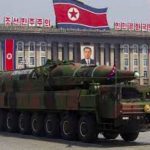In a controversial move, U.S. President Donald Trump has authorized economic and travel sanctions against International Criminal Court (ICC) Prosecutor Karim Khan, marking the first time such measures have been taken against an individual associated with the war crimes tribunal. The sanctions, announced on Friday, target Khan over the ICC’s investigations involving U.S. citizens or allies, according to two sources familiar with the matter.
Karim Khan, a British national, was named in an annex to an executive order signed by Trump on Thursday. Although the annex has not yet been made public, a senior ICC official and another source confirmed the details to Reuters on condition of anonymity. The sanctions include freezing U.S.-based assets of those designated and prohibiting them and their families from entering the United States.
The executive order also directs U.S. Treasury Secretary Scott Bessent, in consultation with Secretary of State Marco Rubio, to submit a report within 60 days identifying additional individuals who should face similar sanctions.
The ICC, based in The Hague, strongly condemned the sanctions, vowing to continue its mission of delivering justice to victims of atrocities worldwide. In a statement, the court said it would stand by its staff and remain steadfast in its efforts to address crimes under its jurisdiction, including genocide, war crimes, and crimes against humanity.
Established in 2002, the ICC has international jurisdiction to prosecute serious crimes in its member states or in cases referred by the U.N. Security Council. However, the United States is not a member of the court and has long criticized its investigations into U.S. military personnel and allies, including Israel.
The sanctions have sparked widespread international concern, with dozens of countries warning that such measures could undermine global efforts to hold perpetrators of serious crimes accountable. A group of 79 nations, representing about two-thirds of the ICC’s membership, issued a joint statement expressing alarm that the sanctions “could increase the risk of impunity for the most serious crimes and threaten to erode the international rule of law.”
The group also highlighted the potential impact on the ICC’s operations, noting that the sanctions could force the closure of field offices and disrupt ongoing investigations.
Under an agreement between the United Nations and the United States, ICC Prosecutor Karim Khan is entitled to travel to New York to brief the U.N. Security Council on cases referred to the court, including those involving Libya and Sudan’s Darfur region. Deputy U.N. spokesperson Farhan Haq emphasized on Friday that any restrictions on individuals should align with the host country’s obligations under the U.N. Headquarters Agreement.
Khan was recently in New York last week to update the Security Council on the situation in Sudan. Haq reiterated the importance of the ICC, stating, “International criminal law is an essential element to fighting impunity, which is unfortunately widespread. The International Criminal Court is its essential element, and it must be allowed to work in full independence.”
The timing of Trump’s executive order coincided with a visit to Washington by Israeli Prime Minister Benjamin Netanyahu, who faces an ICC arrest warrant over the war in Gaza, alongside his former defense minister and a leader of the Palestinian militant group Hamas. During a speech to the U.S. Congress on Friday, Netanyahu praised Trump’s decision, calling the ICC a “scandalous” organization that “threatens the right of all democracies to defend themselves.”
The sanctions have reignited debates over the role of the ICC in global justice and the United States’ stance on international accountability mechanisms. As the situation unfolds, the international community remains divided on the implications of these measures for the future of the court and its mission.






GIPHY App Key not set. Please check settings